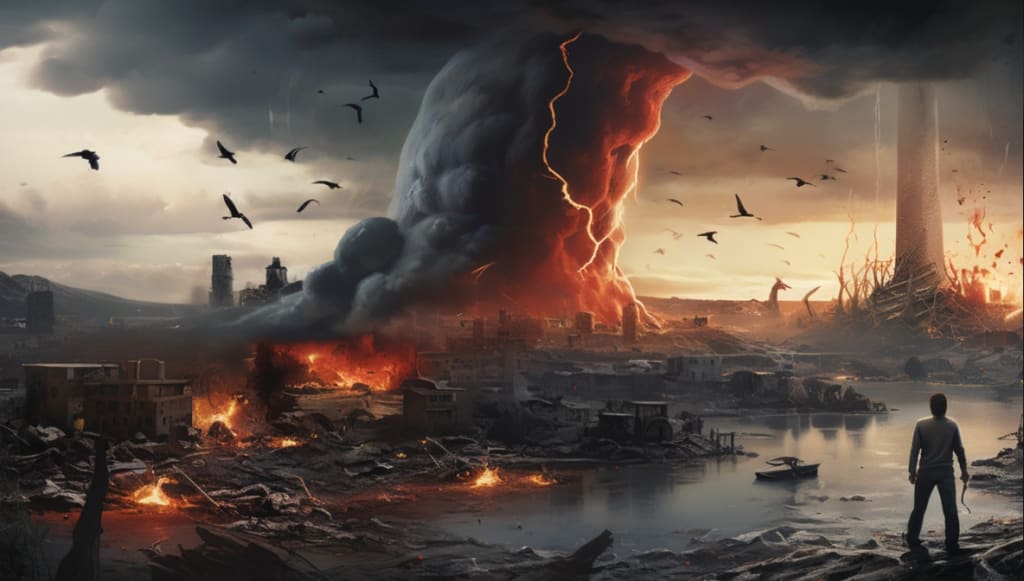The Quest for Retribution
Exploring the Depths of Human Desire for Revenge

The desire for revenge is a primal and intricate facet of human nature that has woven its threads through the tapestry of history. This innate inclination, fueled by a sense of injury or injustice, transcends cultural, geographical, and temporal boundaries. In this exploration, we delve into the complex dimensions of the human psyche, unraveling the motivations, consequences, and the enduring allure of revenge.
Retribution, a concept as ancient as human civilization itself, reflects the visceral response to perceived wrongs. The desire for revenge is deeply embedded in our evolutionary history, rooted in the instinct for self-preservation and the protection of kin or tribe. Throughout history, tales of vendettas, blood feuds, and acts of retribution have echoed through cultures worldwide, leaving an indelible mark on the collective consciousness.
One of the driving forces behind the desire for revenge is the innate human need for justice. When individuals feel wronged or violated, a profound yearning for redress emerges. This desire is often intertwined with notions of fairness, accountability, and the restoration of balance. Revenge, in this context, becomes a form of self-administered justice, an attempt to right the perceived wrongs and restore a sense of order to a disrupted moral landscape.
The emotional landscape that accompanies the desire for revenge is complex and multifaceted. Anger, resentment, and a deep-seated need for retribution converge to create a potent emotional brew. These emotions, when left unaddressed, can fester and grow, transforming the quest for revenge into a consuming force that eclipses reason and empathy.
While the desire for revenge is deeply ingrained in human nature, the actual pursuit of vengeance is a nuanced and often destructive path. Acts of revenge, whether carried out on an individual or societal level, can have far-reaching consequences. The cycle of retribution can perpetuate violence, sow seeds of discord, and lead to a never-ending cycle of vendettas that reverberate through generations.
The psychological toll of revenge extends beyond the immediate act. Individuals who harbor a thirst for revenge may find themselves ensnared in a web of bitterness and obsession. The pursuit of retribution can consume mental and emotional well-being, diverting energy and focus from more constructive endeavors. As the saying goes, "Before you embark on a journey of revenge, dig two graves."
In the broader societal context, revenge can manifest in the form of conflict, war, or systemic oppression. History is replete with examples of nations and groups seeking vengeance for perceived historical wrongs, perpetuating cycles of violence that endure for centuries. The scars of collective revenge linger, leaving indelible imprints on the cultural, social, and political landscapes.
Understanding the desire for revenge also requires examining the role of forgiveness and reconciliation. While revenge seeks to settle scores and mete out justice, forgiveness represents a transcendent act that breaks the cycle of retribution. The capacity to forgive, though challenging, holds the potential for healing, fostering empathy, and building bridges between individuals and communities.
The allure of revenge, despite its destructive potential, remains deeply ingrained in human storytelling and cultural narratives. Literature, theater, and film often explore the themes of revenge, portraying characters who grapple with the moral dilemmas and consequences of seeking retribution. These narratives provide a mirror to our collective consciousness, prompting reflection on the complexities of justice, morality, and the human condition.
In conclusion, the desire for revenge is a complex and enduring aspect of the human experience, reflective of our innate sense of justice and the emotional tumult that accompanies perceived wrongs. While revenge may offer a fleeting sense of satisfaction, its pursuit is laden with pitfalls and consequences that echo through individuals and societies alike. As we navigate the intricate terrain of human emotions, the quest for retribution underscores the need for a nuanced understanding of justice, forgiveness, and the delicate balance between seeking redress and breaking the cycles of vengeance.
About the Creator
Kei Ben
A fresh read goes a long way.
Enjoyed the story? Support the Creator.
Subscribe for free to receive all their stories in your feed. You could also pledge your support or give them a one-off tip, letting them know you appreciate their work.






Comments
Kei Ben is not accepting comments at the moment
Want to show your support? Send them a one-off tip.